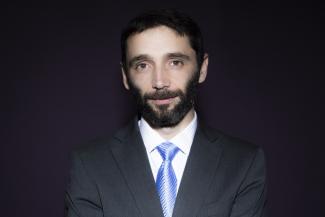Between clear perils and black swans: the strategic challenges after COVID-19

Practical information
A "Les Jeudis de l'Ifri" videoconférence around Corentin BRUSTLEIN, Director of Ifri's Security Studies Center.

The COVID-19 pandemic highlights both the appetites for power and the limits of cooperation and governance mechanisms. While its short-term effects on the armed forces and the defense industrial and technological base were identified early enough, the longer-term security challenges are manifold. Some are already visible, like the multiplying strategic signals and the opportunity effects exploited by all types of actors in the vicinity of Europe as everywhere else, which recall the omnipresence of the balance of power. While many other effects remain more uncertain, gloomy prospects are emerging, which may combine a sudden acceleration of strategic competition, catastrophic humanitarian situations and budget cuts for the French armies and their closest partners. The challenge for the French defense strategy is therefore more than ever to give itself back some leeway, by re-articulating both its priorities and its discourse.
This debate is for corporate members only. It will be conducted in French.
Speakers
Related Subjects
Other events

Post-war Europe: How to Redefine a Security Architecture Within a New Transatlantic Framework?
A new European security architecture has to be built. The question is: will this happen with or without Europe? The US President, Donald Trump, who returned to the White House a little more than two months ago, and the President of the Russian Federation, Vladimir Putin, have initiated talks to put an end to the war in Ukraine, with the possibility of Ukraine ceding territory to Russia being raised.

Doing Politics in African Cities: Actors, Causes and Forms of Urban Social Mobilization
From Maputo to Nairobi and from Lagos to Dakar: recently, African cities have been the theatre of mobilizations by groups of young protesters.








